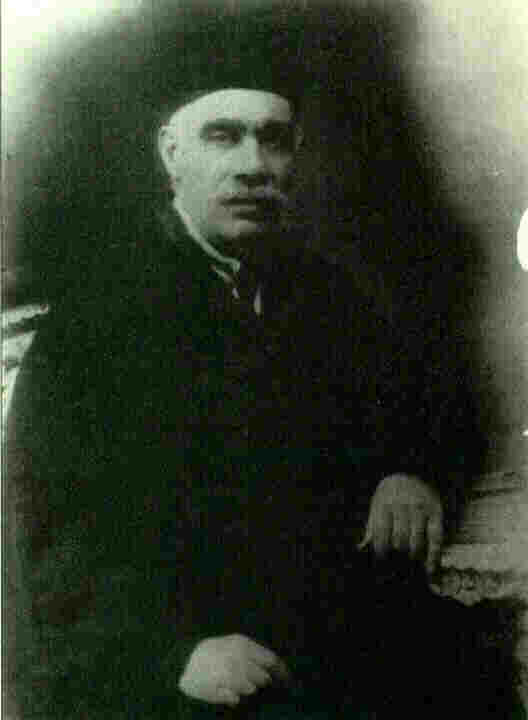Ἰάκωβος Ναυπλιώτης
Ἄρχων Πρωτοψάλτης τῆς Μ.τ.Χ.Ἐ.
![]()
Βιογραφικόν
 |
The ever-memorable Iakovos Nafpliotis was a candle which was burnt on the lampstand of the Church, the Patriarchal analogion. A candle made of beeswax, which shined forth the light of the Resurrection. A light with the transparency and the colour of amethyst, the light that fills the mountain slopes, the Phanar halls, the worn out seat of the Archon Protopsaltes. O sweet light, enlighten our steps!
Iakovos was a worthy successor of his predecessors (Nikolaos Byzantios Lambadarios, Aristeidis Nikolaidis, Georgios Violakis, George Raidestinos II), who had the chance to listen to Daniel, Iakovos the Peloponnesian, Petros Byzantios and Gregory, the great composers and Archcantors. From all these people, directly or indirectly, Iakovos had something to learn.
He was born in Naxos in 1864. Young, he moved to Istanbul, where he was selected due to his excellent voice and, in 1878, hired as First Canonarch in the Patriarchal Church. This was a rather desirable position, because he greatly assisted the patriarchal choir by canonstarting, keeping the tone, and the typical order which he knew well and directed others to follow.
Iakovos progressed through all the stages of the music hierarchy (1881-1888 Second Domestikos, 1888-1905 First Domestikos, and 1905-1911 Lambadarios), and was officiated Archon Protopsaltes by Patriarch Joachim III in 1911.
From this distinguished position, Iakovos «arose as incense» the prayers of Christians to God with his sweet melody until 1938. Thus, with his continuous service he offered 60 years to the musical shrine of the Church, to the Revered Patriarchal Temple, to the Great Church of Christ.
During that period, he taught Byzantine Chant to the Patriarchal Music School of Phanar. In 1894, he published the two-volume «Forminga» containing chants and odes for the use of primary schools and every friend of music. Together with his Domestikos Constantine Klavvas, he published 1899 in two volumes the Doxastarion of Petros the Peloponnesian.
These lessons we hear today are the bridge - the arc-en-ciel - which connects us to Iakovos and his predecessors. That is how they chanted; that is Iakovos chanted; that is how Priggos later on chanted, with the same style, as there are heard today from their recordings.
Iakovos fell asleep in the Lord on December 5th, 1942 in Psychiko (Athens, Greece). His legend shall remember immortal.
Prof. A. Boudouris in an article in «Orthodoxia» remarks about Iakovos: «Iakovos Nafpliotis, who as Second Domestikos of the Patriarchal Temple, stood by the teacher Nikolaos Lambadarios, who always sang using manuscripts in the old notation of Petros the Peloponnesian, because he completely ignored the new notation, was introduced and educated in the Patriarchal style of chanting the ecclesiastical songs. He kept the music reality of the ancient Archcantors, and is today the continuer of the patriarchical tradition.»
Priggos, his student and follower said: «The first time I went and heard Iakovos was at the Canon of Supplication and he was saying "Ἄλαλα τὰ χείλη τῶν ἀσεβῶν..." (Let the impious lips be bereft of speech...) and the Patriarch Joachim III descended from the throne, worshipped [the icon of] the Pammakaristos and returned back, crossed himself and ascended back onto the throne. I was enthused with this thing I heard; I said: Nobody is a cantor but for him.»
May your memory be everlasting, O blessworthy and ever-memorable Archon Iakove Nafplioti!
![]()

